Africa’s Health Innovation Ecosystem: What’s Fueling the Boom?
Africa is witnessing a digital health revolution driven by mobile-first solutions, youth innovation, public-private partnerships, and pandemic-fueled urgency. This witty, culturally-rich article explores what’s fuelling the boom and why Africa’s health innovation scene is one to watch — and join.

“When the roots of a tree begin to decay, it spreads death to the branches.” — Nigerian proverb
But what happens when the roots are rewired with fiber optics, machine learning, and telehealth apps? Well, in Africa’s healthcare space, it means the whole tree is not only surviving — it’s blooming into a forest of innovation.
Let’s talk about the health innovation boom in Africa. What’s causing it? Who’s fuelling the fire? And what makes this continent the unexpected underdog-turned-champion of digital health?
📱 The Smartphone Surgeon is In
First, let’s talk tech. Africa might be “resource-constrained,” as the polite donor-funded language goes, but one resource it has in abundance? Mobile phones. Over 615 million Africans are connected to mobile services — and that number is climbing like a goat chasing mangoes on a windy day (GSMA, 2023; https://www.gsma.com/mobileeconomy/sub-saharan-africa/).
Mobile penetration has become the digital stethoscope. From WhatsApp-based teleconsultations in Kenya to USSD-powered maternal health alerts in Nigeria, innovation doesn’t always mean flashy — sometimes it just means functional.
🌍 Why Now? It’s Not Magic, It’s Momentum
Here’s a riddle for you: What grows under pressure, thrives on crisis, and speaks every language in Africa?
Answer: Digital Health.
The COVID-19 pandemic acted like that no-nonsense auntie who slaps sense into the room. Suddenly, governments, NGOs, and health entrepreneurs realised: if patients can’t come to the doctor, the doctor must go to the SIM card.
Telemedicine use in Africa increased 20-fold between 2020 and 2022 (WHO Africa, 2022). Platforms like Rocket Health (https://www.rockthehealth.com/) in Uganda and 54gene in Nigeria are proving that African startups can be both profitable and lifesaving.
Even South Africa's LifeQ (https://www.lifeq.com) is producing wearable biosensors rivaling anything you’ll find in Silicon Valley — but without the elitist avocado toast budget.
🧠 Youth: Africa’s Real Oil Reserve
You know what they say: “The child who is not embraced by the village will burn it down to feel its warmth.”
Africa’s youth aren't burning villages — they’re building healthtech unicorns. With over 60% of the population under 25, the continent has an unstoppable wave of digital natives who think in code and dream in pitch decks.
Initiatives like CcHub’s Health Innovation Hub in Lagos (https://cchubnigeria.com/) and Kenya’s iHub (https://ihub.co.ke/) are fuelling startups with Wi-Fi, mentorship, and just enough caffeine to keep hope alive.
And unlike certain global VC bros who only fund another app for dog yoga, African investors are waking up to the med-tech goldmine. According to Briter Bridges, $189 million was invested in African health startups in 2022 alone (Briter Intelligence, 2023; https://www.briterbridges.com).
🏥 Public + Private = The New Power Couple
Gone are the days when public health waited on donor aid like a jilted bride. Today, PPP — Public-Private Partnerships — are the new it-couple of African health innovation.
Take Rwanda’s partnership with Babyl Health (https://www.babyl.rw), which is delivering AI-powered consultations to millions via the national health insurance scheme.
Or Kenya’s Ministry of Health teaming up with AMREF to roll out eLearning platforms for community health workers — because who said training can’t be mobile-first?
It’s a romance of efficiency, really. One side brings scale, the other brings speed. Together? Boom. Innovation babies.
💡 But Wait — It’s Not All Vibes and Venture Capital
Lest we drown in startup Kool-Aid, let’s pause.
Africa’s digital health sector still battles connectivity gaps, data privacy black holes, and policy frameworks that move slower than molasses on a cold morning.
Some governments still treat innovation like a nosy in-law: tolerated but not welcomed.
Yet, despite the potholes, the road ahead is paved with resilience. As the Swahili saying goes: “Haraka haraka haina baraka” — hurry, hurry has no blessings. Slow progress, but meaningful.
🛠️ What’s Next?
-
Policy clarity: Governments must catch up with tech by updating health laws that were written before Wi-Fi existed.
-
Equity focus: Innovation must not leave behind the rural, the poor, or the disconnected.
-
Pan-African collaboration: We don’t need 54 versions of the same med app. Let’s build together.
As Dr. Levi Cheruo, founder of Doctors Explain (https://www.doctorsexplain.net), often says, “African problems need African prototypes — not imported PowerPoints.”
✍️ Final Thoughts
The health innovation boom in Africa isn’t a trend. It’s a tectonic shift — powered by mobile-first creativity, youth-led courage, and public-private hustle.
So the next time someone tells you Africa is "emerging," tell them: “We’re not emerging, dear — we’re erupting.”
References (APA Style)
Briter Intelligence. (2023). Healthtech investment in Africa: 2022 Year in Review. Retrieved from https://www.briterbridges.com
GSMA. (2023). The Mobile Economy Sub-Saharan Africa 2023. Retrieved from https://www.gsma.com/mobileeconomy/sub-saharan-africa/
LifeQ. (n.d.). LifeQ — Smart wearable technology. Retrieved from https://www.lifeq.com
Rocket Health. (n.d.). Rocket Health Uganda. Retrieved from https://www.rockthehealth.com
World Health Organization – Africa. (2022). Telemedicine is transforming healthcare across Africa. Retrieved from https://www.afro.who.int/news/telemedicine-transforming-healthcare-across-africa
CcHub. (n.d.). Co-creation Hub Nigeria. Retrieved from https://cchubnigeria.com
Doctors Explain. (n.d.). Doctors Explain Digital Health Co. LTD. Retrieved from https://www.doctorsexplain.net
Babyl Rwanda. (n.d.). AI-powered healthcare for all. Retrieved from https://www.babyl.rw
iHub Nairobi. (n.d.). iHub Kenya. Retrieved from https://ihub.co.ke
What's Your Reaction?
 Like
0
Like
0
 Dislike
0
Dislike
0
 Love
0
Love
0
 Funny
0
Funny
0
 Angry
0
Angry
0
 Sad
0
Sad
0
 Wow
0
Wow
0




















































